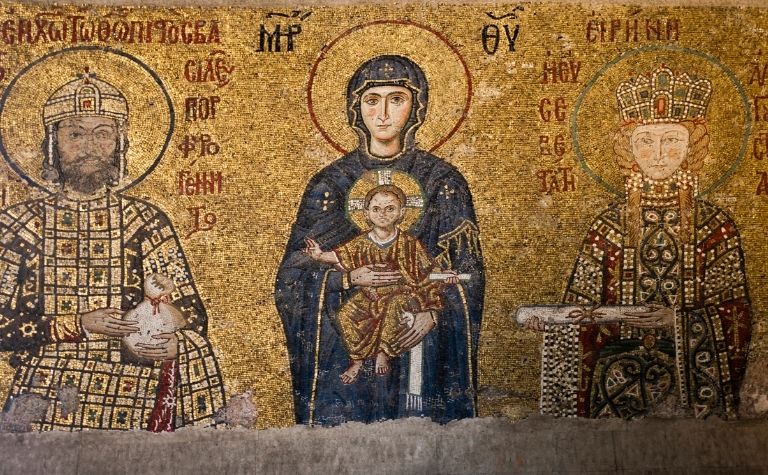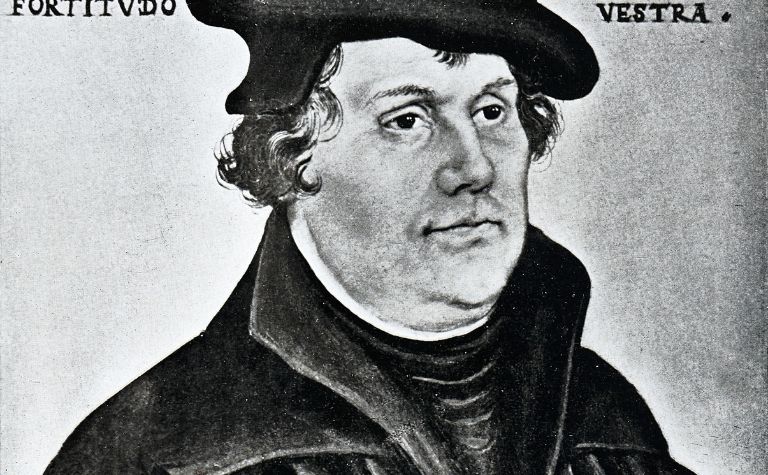One of the most beloved figures in all of Christianity is Mary, the mother of Jesus Christ. Yet, though Mary plays a prominent theological role in all denominations, certain Christian traditions are more reserved in their adoration of her. In particular, Lutherans have established limitations on how they view and honor Jesus’ mother.
To Lutherans, Mary is Jesus’ mother and a holy example of humility, servanthood, devotion, and faith. Contrary to Catholic theology, Lutherans don’t believe she was sinless or that God removed her from Earth before death. She is also not a co-mediator with Christ; people shouldn’t pray to her.
In the Lutheran tradition, Mary is also profoundly revered. Still, the prevailing belief among Lutherans is that the fundamental principle of grace alone), faith alone, and Scripture alone trumps all feelings of respect and empathy for one of Christianity’s most endearing figures. Keep reading to learn more.

Who is Mary to Lutherans?
In the Lutheran tradition, Mary is revered in much the same way as she is throughout Christianity. In other respects, however, she is not afforded the same lofty position as in Catholicism.
Much of this difference of opinion between Lutherans and other Christian denominations regarding competing views about Mary comes from the fundamental theological underpinnings of Lutheranism itself. (Also see Lutheran Bible vs. Catholic Bible: What’s the Difference?)
The Three Solas of Lutheranism
Lutheran beliefs concerning Mary align with their theology of justification which states that salvation is given through God’s grace and achieved only through faith. [1] The theological pillars upon which much of Lutheranism come from the “three Solas”:
- Sola gratia, “by grace alone” – salvation is solely a gift from God and not dependent on one’s actions.
- Sola fine, “through faith alone” – it is through faith alone, and not good works, that one receives God’s grace.
- Sola Scriptura, “in scriptures alone” – one of the foundational beliefs of Lutheranism is that the Bible alone shapes the Lutheran faith’s beliefs and practices, for it is the inspired word of God. [2]
Within this framework of theological edicts, the Lutheran view of Mary (and all spiritual concerns, for that matter) must align with the beliefs and practices of the biblical convictions that shape Lutheranism.
With these guiding principles in mind, here is a look at the role of Mary in Christianity through the Lutheran lens. (Also see Do Lutherans Speak in Tongues?)
Lutherans Believe that Mary is the Theotokos
As the birth mother of Jesus, Lutherans view Mary as the Theotokos, or Mother of God. [3] This exalted title was settled as a matter of Christian doctrine and formally bestowed upon Mary by the Ecumenical Council of Ephesus in 431. (Also see What Bible Translation Do Lutherans Use?)
The belief that Mary is the mother of God is rooted in the Christian faith’s acceptance of Jesus as human and divine.
Thus, as the birth mother of Jesus, he of the Holy Trinity, Mary people view Mary as the Theotokos, and Lutherans wholeheartedly embrace this belief. (Also see Do Lutherans Believe You Can Lose Your Salvation?)

Mary as the Queen of Heaven – Luther’s View
From the Lutheran perspective, it is essential to distinguish Mary as the mother of God versus the saintly status that has been bestowed upon her by other Christian traditions.
In his written work The Magnificant, Martin Luther espoused his (and Lutheranism’s) views on Mary’s proper place in the Christian hierarchy. [4]
- While upholding her title of Mother of God, Martin Luther also pointed out that God chose Mary to bear the child that would be Jesus Christ, and such an appointment was an honor of unparalleled magnitude.
- She is known as the Blessed Virgin Mary, not because of her own piousness or virtue, but because God performed his heavenly work through her.
- Mary is a valuable lesson to all Christians of how He can work His heavenly deeds even through the lowliest and humblest of God’s servants.
- Despite the clearly defined boundaries that Lutheranism places on its reverence of Mary, Martin Luther was unabashed in honoring her, even referring to her as the “Queen of Heaven” and stating with great conviction, “Was not hers a wondrous soul?”
The Lutheran Views of Mary as a Mediator of Grace
Like the overwhelming majority of Christians around the world, Lutherans hold a special place in their hearts for Mary. But unlike their Roman Catholic counterparts, Lutherans do not view Mary as a mediatrix or as having an intercessory role. [5] (Also see Do Lutherans Pray for the Dead?)
The founding father of Lutheranism, Martin Luther, was unabashedly adoring of Mary but was also quite firm when setting the boundaries for revering her:
- Lutherans take their prayers directly to Jesus Christ because all believers have access to Him and because He is the sole intercessor before God.
- Therefore, it is unnecessary and fundamentally un-Lutheran to pray to Mary for that which ought to be prayed to Jesus alone.
- Jesus Christ does not bestow God’s graces through Mary (or any saint, for that matter).
- Martin Luther rejected the idea of intercessory prayer to Mary because he believed doing so would impinge upon Christ’s exclusive role in salvation.
Concerning the idea of Mary acting as a mediator for the attainment of grace, Lutherans find themselves in the clear minority by believing that while she is certainly worthy of deep reverence and respect, prayer to Mary and seeking grace through her are, in fact, adiaphora – not necessary for salvation. [6] (Also see Do Lutherans Believe in Angels?)
Martin Luther is known to have expressed the firm opinion that when reverence toward Mary (or any other person) goes too far, whether by placing her on near-equal footing with her son Jesus Christ or through direct intercessory prayer to her, such acts are tantamount to idolatry. [7]
Luther urges his followers to distinguish acts of grace that manifest themselves through people from the actual source of such grace.
Lutherans Believe in the Immaculate Conception
Many people believe Martin Luther accepted the doctrine of the Immaculate Conception centuries before the Catholic Church declared it as Christian dogma in 1854 (Martin Luther died in 1546).
Even more surprisingly, Luther preached that “Mary’s soul was effected without original sin” and “thus from the first moment she began to live she was free from all sin” even though the Bible does not explicitly teach this. [8] (Also see Can Lutherans Marry Non-Lutherans?)
In his later years, Luther became less vocal about his view on Mary’s sinlessness in keeping with the fundamental Lutheran principle of sola scriptura.

Luther’s Stance on Mary’s Bodily Assumption
On the Catholic doctrine that after her life on earth ended, the body and soul of Mary rose (was assumed) into heaven, Lutherans are somewhat passively accepting of this dogma by the absence of any vocal or formal objection. Luther is known to have preached on the subject. [9]
In one of his final sermons on the Feast of the Assumption (August 15th is considered a holy day by many Christians to mark the date of Mary’s ascent to heaven), Martin Luther eloquently expressed: “There can be no doubt that the Virgin Mary is in heaven. How it happened, we do not know. And since the Holy Spirit has told us nothing about it, we can make of it no article of faith . . . It is enough to know that she lives in Christ.”
Luther seemed open to some idea of Mary’s bodily assumption to heaven, if not begrudgingly, then by concession. (Also see Why Do Lutherans Make the Sign of the Cross?)
Final Thoughts
Jesus does not bestow graces through her, but Mary holds a special place in the hearts of Lutherans as the beloved Mother of God.
References:
[1] Source
[2] Source
[3] Source
[4] Source
[5] Source
[6] Source
[7] Source
[8] Source
[9] Source
Related Questions
The Lutheran tradition is a 500-year-old branch of Protestant Christianity. Non-denominational churches are a fast-growing segment of evangelical Christianity, especially in the United States and...
The Lutheran tradition remains a significant and influential branch of Protestant Christianity over 500 years after its establishment. However, pentecostal and charismatic Christianity is one of the...
